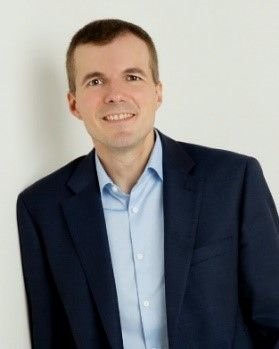 Hello everyone, my name is Ashley.
Hello everyone, my name is Ashley.
I am part of the Partnership Programme Team, where I work on transforming community health services for adults, with a specific focus on improving services and outcomes for older people.
I spent the first half of my career working for national organisations, but my eyes were opened to where real change happens when I was fortunate to be part of the ‘Five Year Forward View’ which set out a future for new models of integrated population-health based care. This took me outside the walls of NHS England and enabled me to work directly with local organisations in Wakefield, and in Bradford district and Craven. It’s here where I gained a huge appreciation for both the complexities and breadth of joined up care but also the knowledge and skills, drive and passion of teams working to transform quality, outcomes, and experience for those we serve.
The longer I spent working closely with colleagues in Wakefield and Bradford district and Craven, the more I was struck by the levels of energy and enthusiasm, and the strength of partnerships across the NHS, local councils, and the voluntary community social enterprise sector. But I also became increasingly aware that often the legislation, national frameworks and funding in which organisations and teams were operating at the time perversely seemed to work against the spirit of integrated care.
Being part of local initiatives demonstrated clearly to me there was a way to genuinely transform and bring together services, based around the needs of local communities, and where care was more proactive, preventative and personalised. It needed the national legislation and policies to catch-up. When the NHS Long Term Plan was published in 2019, the vision for integrated care systems completely resonated with me. As a West Yorkshire lad born and bred, it’s the opportunities we have in the Partnership to deliver more care at home and close to home, investing in joining up services that are co-produced with local communities, that really excites me. Therefore, I count myself as very privileged to now be part of the journey of the West Yorkshire Health and Care Partnership, though I joined at the start of the pandemic, so I’ve not yet been able to meet many colleagues in person! My role is to support development of models of care that help people to age well, and the specific contribution of community health services within that. As with all the programmes at the West Yorkshire level, it is though very much on based on a principle of ‘team of teams’ and guided by our ‘three tests’.
With all this in mind, for me it is how the developments at the West Yorkshire level encompass and help connect all that we do across the Partnership that informs our approach to ‘ageing well’. So much of the credit in this blog really should go to the teams leading the integration locally, through the Bradford and district and Craven ‘Act as One’ Programme, Calderdale Cares and the work of Calderdale Collaborative Community Partnership Board, Kirklees’s Ageing Well Programme, Leeds’s Population Board and Partnership for Frailty, and Connecting Care in Wakefield. One of the regular highlights of my role is when I am part of those place discussions and how that helps continually shape and evolve how we progress together across West Yorkshire, whether that is how we can best improve outcomes and reduce health inequalities for older people, work collectively on addressing common issues within community health services, or by forging more integrated ways of working around local populations through primary care networks.
To put this in a more practical context and illustrate with a specific example, I am delighted to be sharing this message with Becca Spavin, who is part of the Kirklees Provider Alliance, one of seven national accelerator sites developing a new model of urgent community response. The development of the Kirklees Urgent Response Service, which is now being mirrored with similar approaches across West Yorkshire, reflects how working together across organisations, around a shared ambition to keep people well in their own homes, both benefits patients and our wider population, fosters multi-professional team working, and strengthens the values of cooperation and collaboration at the heart of integration.
Integrating care can often feel complex, with a vast array of interconnectedness between different sectors, services and teams, almost like the biggest ‘dot to dot’ puzzle you can imagine. But I draw energy and strength from the true sense of team that is palpable when working with my colleagues in the five places, and with my peers leading other programmes at the system level. I am motivated by how the arrangements being developed for next year can both continue and significantly enhance the journey the Partnership has been on since its inception, and whilst connecting via MS Teams has been a revelation to me during the pandemic, I do hope one day to be able to finally meet more of my colleagues for a cuppa. I’ll put the kettle on!
Have a great weekend
Ashley
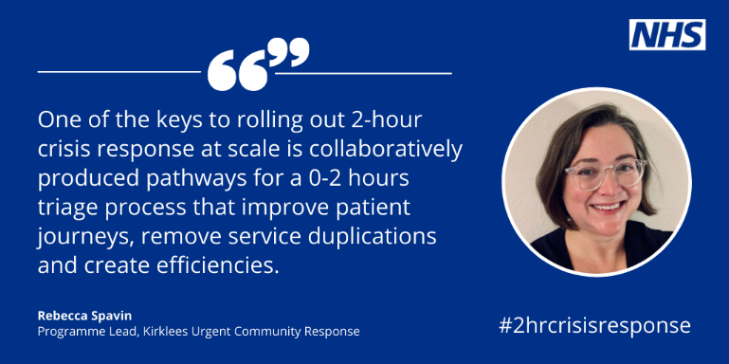 Hello, my name is Becca, and I am part of the Kirklees Provider Alliance that has been working together since last year to establish a new and innovative model for urgent community response.
Hello, my name is Becca, and I am part of the Kirklees Provider Alliance that has been working together since last year to establish a new and innovative model for urgent community response.
The development of urgent community response (UCR) was one of the national ambitions set out in the NHS Long Term Plan to boost ‘out-of-hospital’ care, through increasing capacity and responsiveness of community and intermediate care services, so that more people experiencing a health or care crisis could be cared for at home, reducing the need for emergency admissions to hospital. As in other parts of West Yorkshire, we had in Kirklees existing community services and social care teams that provided rapid support to keep people well in their own homes and in care homes, but the development of UCR has enabled us to significantly enhance and connect together how those teams work, and how this integrates more widely with primary care, secondary care and the ambulance service. Our urgent response teams give those who need it fast access to a range of qualified professionals who can address both their health and social care needs and deliver a crisis response within two hours and reablement care within two days.
A key part of the delivery of the national UCR priority was to first test the model with a number of different pilots or ‘accelerator sites’ across England, ahead of wider national-rollout, and in 2019 Kirklees was selected as the accelerator for the North-East and Yorkshire Region – which was a fantastic honour and opportunity.
In Kirklees the service we wanted to pilot was a clinical model that could provide short term input to recover from an ‘acute episode’ within the community, therefore avoiding a hospital admission or where input for a short-term intervention could reduce the length of their hospital stay. This included how teams from different professions and organisations can work together in a more integrated way that wraps proactive urgent care around patients, and in how referrals to crisis services can be more streamlined, with a single point of access. A further aim of being an accelerator was to build and develop an emerging alliance of health and social care providers willing to work together to create efficiencies in health and social care delivery for the benefit of Kirklees residents. So, in effect, UCR was both a way of creating a more joined-up integrated model of urgent care and in parallel continue to support our local approach to partnership working and collaborative service design across our Alliance.
We commenced our accelerator programme early in 2020, but at a time when the country was also experiencing the first wave of the pandemic, and it is testament to the commitment of colleagues within our Alliance that we were able continue developing the service despite these wider external challenges. Rather than stop the pilot, we adopted a phased approach to the service mobilisation based on ‘plan, do, study, act’ (PDSA) cycle, learning and improving as changes were implemented.
The new service was launched in November 2020, and over the past year we have gradually refined how it works following an on-going PDSA approach. Since the launch we have:
- Expanded the service criteria from frail to all age adults,
- Increased the number of referral routes into the service,
- Amended service capacity based on actual demand modelling to show real opportunity for UCR around admission avoidance into hospital,
- Created a ‘one stop shop’ pathway for referrals into the service from road paramedics,
- Managed through a lot of effort and tenacity to (eventually) get all the UCR providers to submit to the community services data set, which will further help demonstrate the impact the service is making and
- Have evolved from a five day to seven-day service.
Not everyone wants to be bombarded with stats – so the headlines from the first year of the Kirklees UCR service are:
- There have been over 3200 calls into the hub
- Over 600 calls were managed virtually by the triage hub via remote consultation, production of a script or advice
- Over 1400 face to face 0-2hr visits have been undertaken
- 81% of people seen by the Kirklees UCR team have not had an A&E attendance or an emergency admission within 2 days of a visit.
There is still plenty to do to develop the service further –particularly around further integration and efficiencies and to drive up referrals from 111 and 999. That said, it is important to recognise the efforts already made and successes to date. Getting positive feedback from our care homes in Kirklees has been a real morale booster for the UCR Provider Alliance and staff. One family member got in touch to tell us “The response from the UCR team on Friday was amazing – my grandma had a chest infection and district nurses are going to do bloods, but she is so much brighter over the weekend and was singing and playing the piano yesterday – like a completely different person They have certainly prevented a hospital admission and carer breakdown”. The best bit about this feedback is that it helps us know we are doing what we set out to do. It has not been an easy time for any colleagues across health or care over the past couple of years, but knowing we have been a small part of supporting improved outcomes for our residents is wonderful.
Have a good weekend everyone
Becca


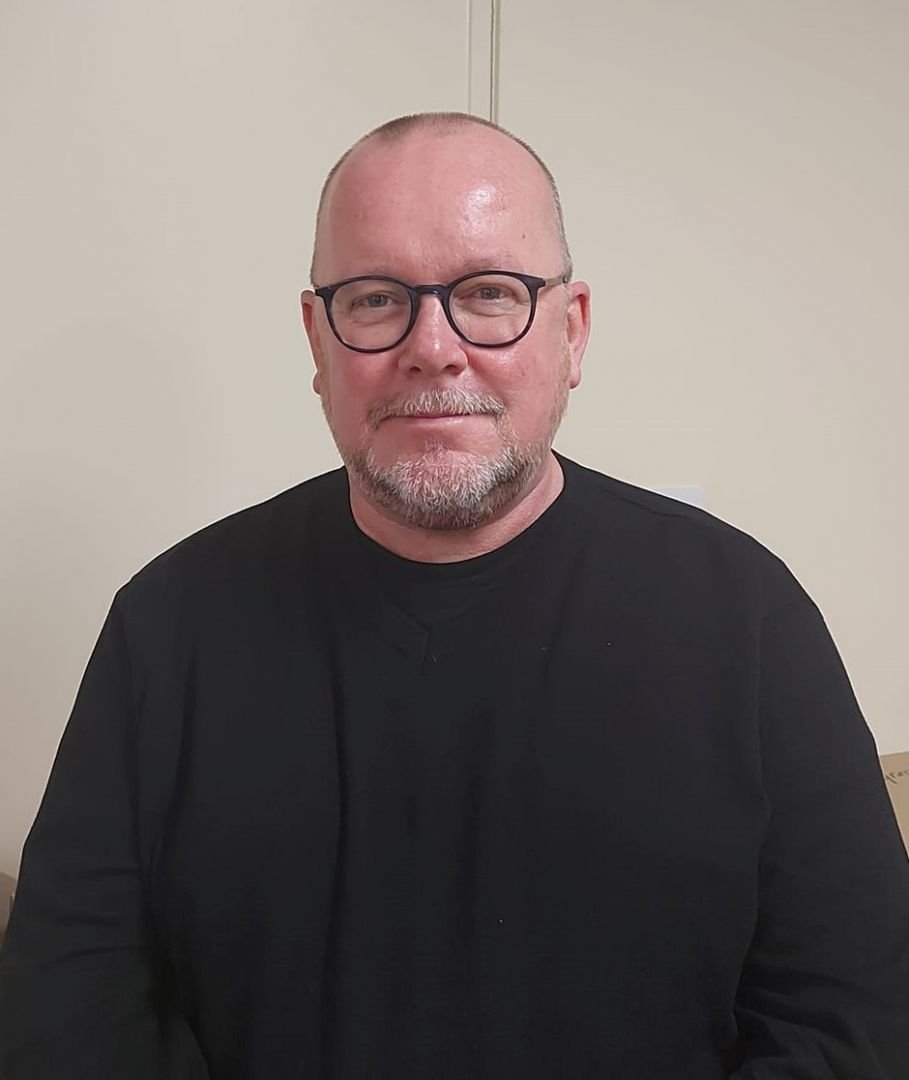
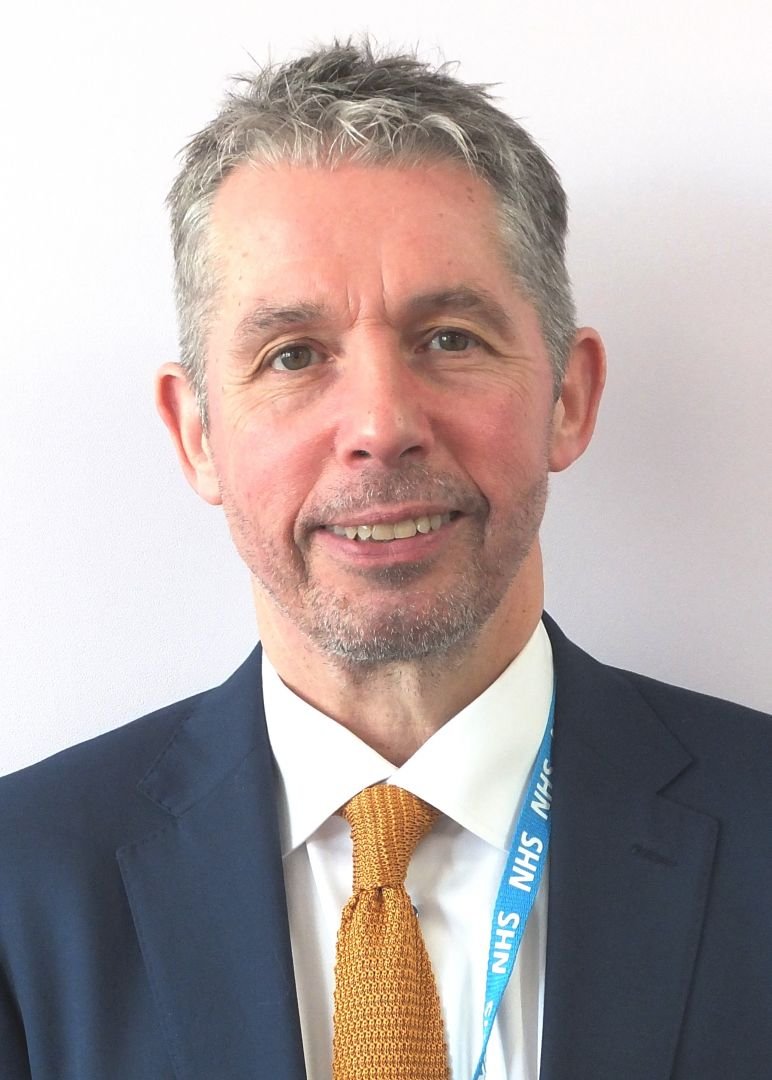 Hello, our names are Pat and Keith.
Hello, our names are Pat and Keith.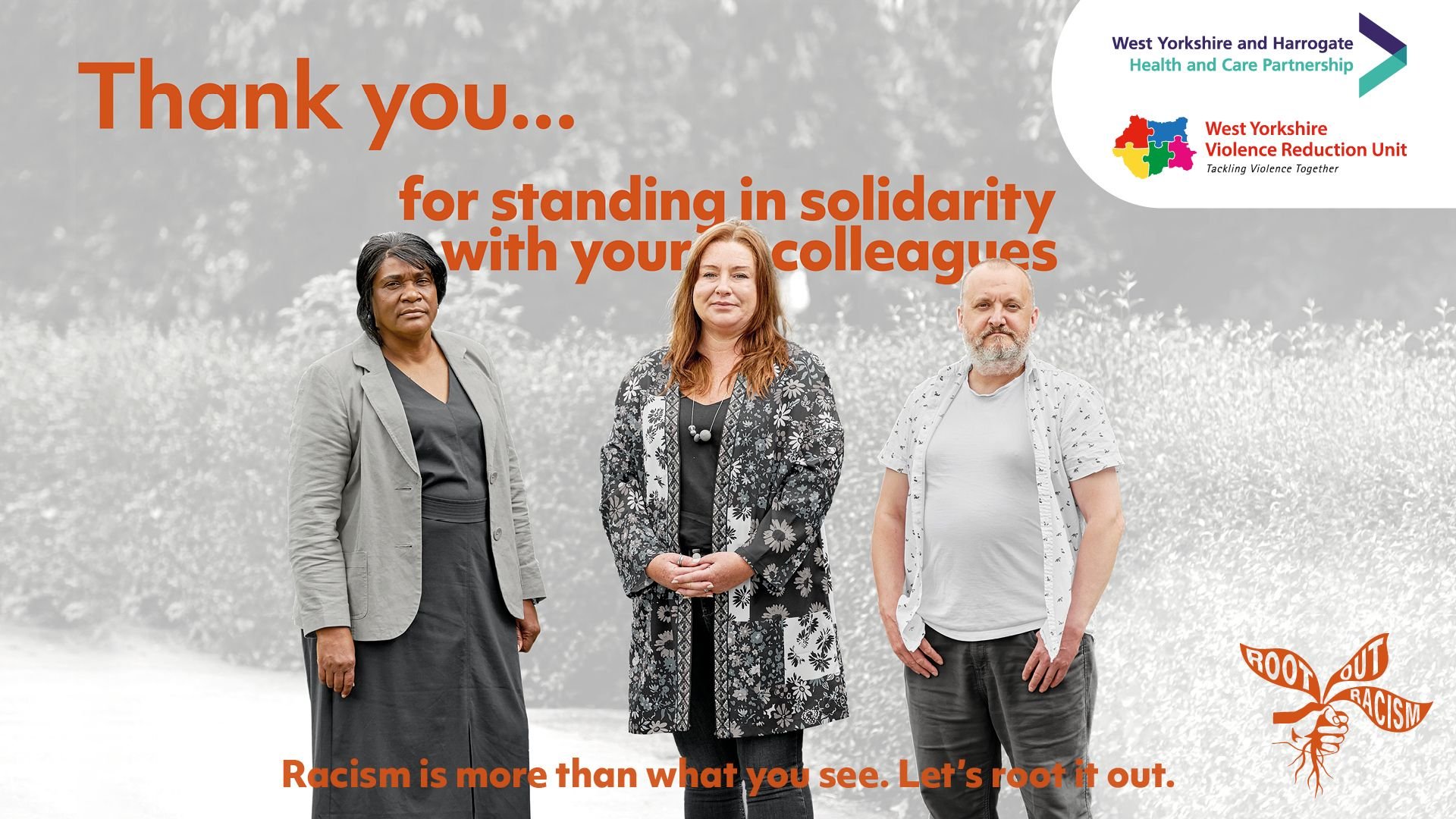 On Thursday, Rob Webster our CEO, Cllr Tim Swift, Chair of our Partnership Board, Jackie Marsh, Chief Superintendent, Director of the West Yorkshire Violence Reduction Unit and Fatima Khan-Shah, Partnership Programme Director for Unpaid Carers and Personalised Care and Convener for the Partnership’s Race Equality Network wrote to over 580 organisations / community allies supporting our anti-racism movement. They thanked supporters for being part of the
On Thursday, Rob Webster our CEO, Cllr Tim Swift, Chair of our Partnership Board, Jackie Marsh, Chief Superintendent, Director of the West Yorkshire Violence Reduction Unit and Fatima Khan-Shah, Partnership Programme Director for Unpaid Carers and Personalised Care and Convener for the Partnership’s Race Equality Network wrote to over 580 organisations / community allies supporting our anti-racism movement. They thanked supporters for being part of the 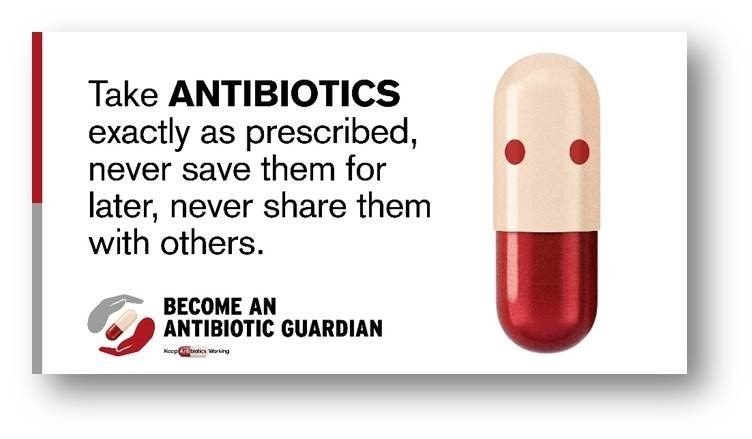 World Antimicrobial Awareness Week is celebrated from 18th-24th November every year. This year's theme is Spread Awareness, Stop Resistance. Throughout World Antimicrobial Awareness Week, the West Yorkshire Research and Development team, in partnership with the medicines optimisation teams across the West Yorkshire CCGs, will be marking the week by sharing resources, blog posts and research papers related to antimicrobial resistance.
World Antimicrobial Awareness Week is celebrated from 18th-24th November every year. This year's theme is Spread Awareness, Stop Resistance. Throughout World Antimicrobial Awareness Week, the West Yorkshire Research and Development team, in partnership with the medicines optimisation teams across the West Yorkshire CCGs, will be marking the week by sharing resources, blog posts and research papers related to antimicrobial resistance. Red Kite View
Red Kite View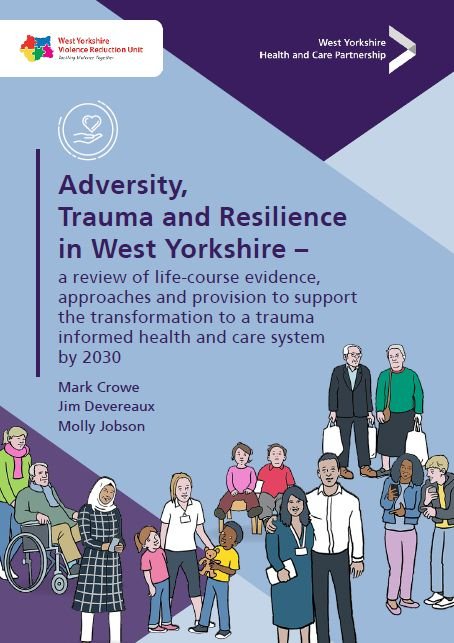 Three reports were published on Monday 15 November which aim to help tackle the root causes of adversity, trauma, and serious violence across West Yorkshire. Commissioned by the West Yorkshire Violence Reduction Unit (VRU) and our Partnership, they include.
Three reports were published on Monday 15 November which aim to help tackle the root causes of adversity, trauma, and serious violence across West Yorkshire. Commissioned by the West Yorkshire Violence Reduction Unit (VRU) and our Partnership, they include.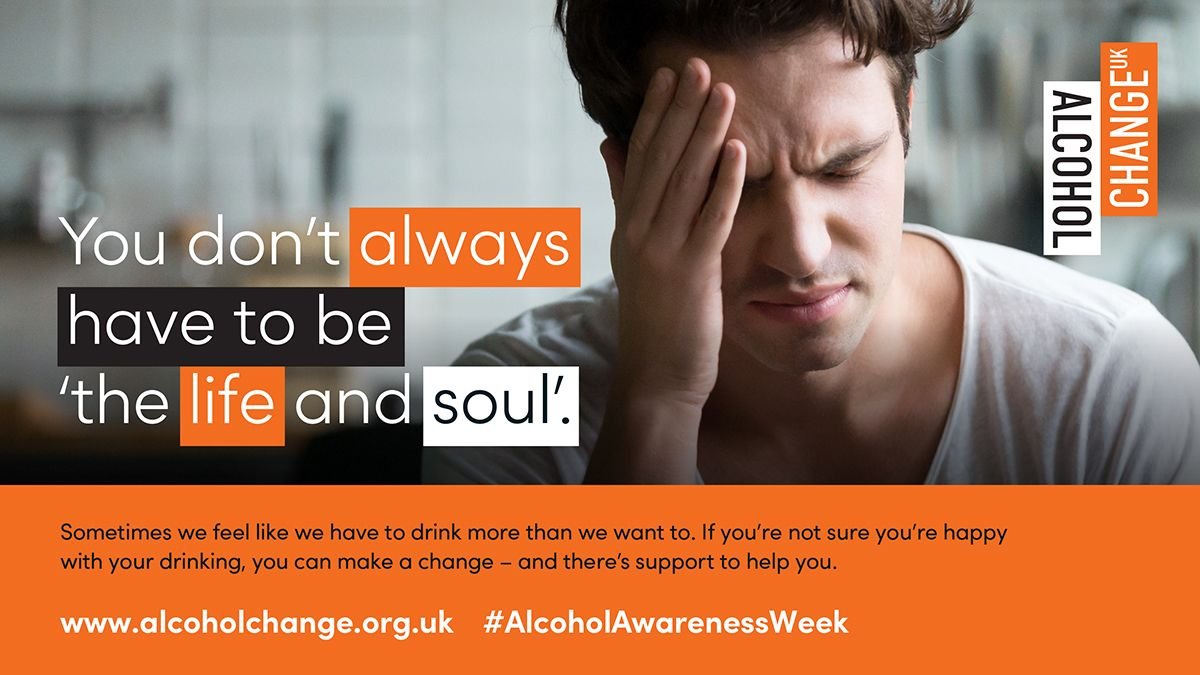 Alcohol Awareness Week
Alcohol Awareness Week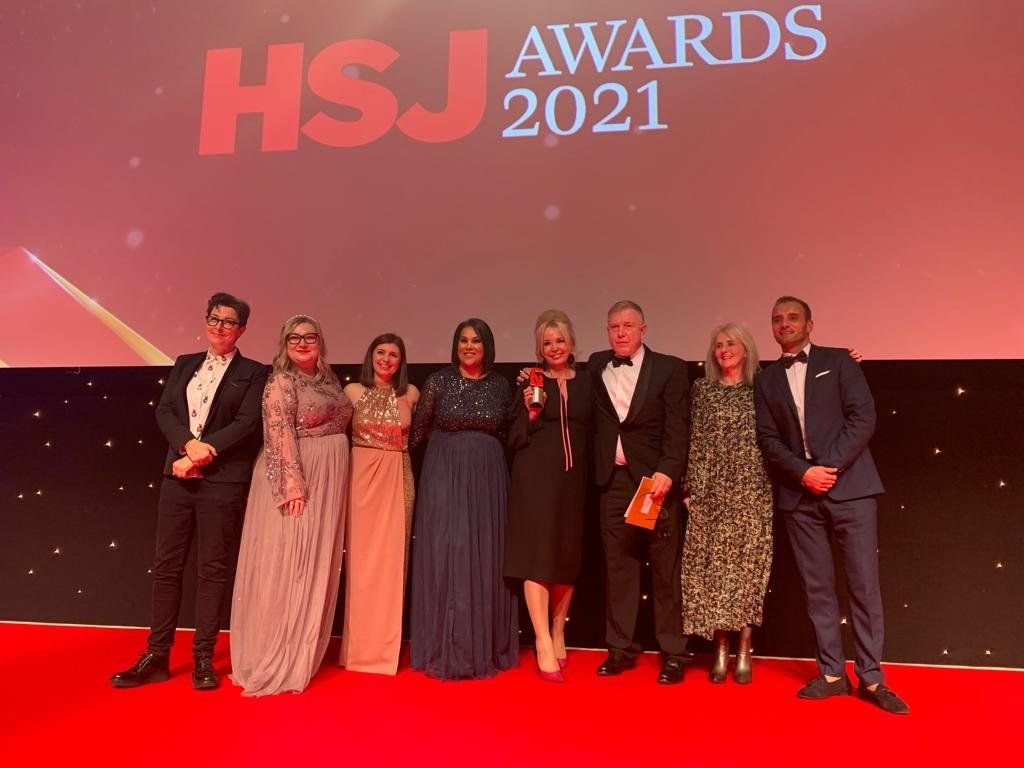 West Yorkshire Health and Care Partnership was named 'Integrated Care System of the Year' at the
West Yorkshire Health and Care Partnership was named 'Integrated Care System of the Year' at the 







